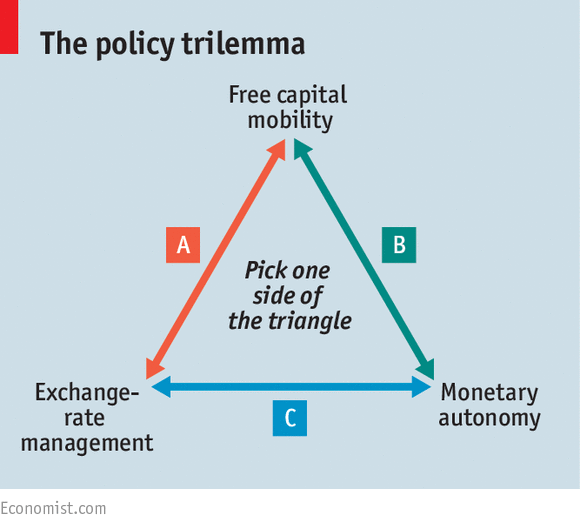- We should accept the premise that people will not run their own servers by designing systems that can distribute trust without having to distribute infrastructure. This means architecture that anticipates and accepts the inevitable outcome of relatively centralized client/server relationships, but uses cryptography (rather than infrastructure) to distribute trust. One of the surprising things to me about web3, despite being built on “crypto,” is how little cryptography seems to be involved!
- We should try to reduce the burden of building software. At this point, software projects require an enormous amount of human effort. Even relatively simple apps require a group of people to sit in front of a computer for eight hours a day, every day, forever. This wasn’t always the case, and there was a time when 50 people working on a software project wasn’t considered a “small team.” As long as software requires such concerted energy and so much highly specialized human focus, I think it will have the tendency to serve the interests of the people sitting in that room every day rather than what we may consider our broader goals. I think changing our relationship to technology will probably require making software easier to create, but in my lifetime I’ve seen the opposite come to pass. Unfortunately, I think distributed systems have a tendency to exacerbate this trend by making things more complicated and more difficult, not less complicated and less difficult.
The economics of blockchain-based gaming don't add up
Blake Robbins, who used to work on game design at Roblox, has written an in-depth post on why blockchain-based gaming will never take off.
TL;DR: not only is it likely to be a Ponzi scheme, it's just a really bad idea for basic economic reasons.

Narratives can be moulded, but unfortunately crypto gaming evangelists will not be able to change basic economics. The fact that the problem with the Mundell-Fleming trilemma and how crypto games fall on the wrong side of them from a pure game design perspective which ultimately prevent large developers from creating AAA games with open economies as well as ruining user experience is totally ignored by VCs who are funnelling absurd amounts of money into these projects makes me question if they actually believe in the narrative they’re pushing, or if they’re simply investing in token pre-sales and planning on dumping on unwitting retail bagholders.
For the record, I’m not a crypto hater or anything... [h]owever, I just don’t see the application of decentralised blockchains in gaming, there isn’t a need. Putting games on the blockchain will just result in really slow servers as everything would constantly have to be verified by a decentralised database. No one gamer has ever said: “I don’t trust Rockstar to store my data correctly which is why I won’t buy GTA V”. Building games for the sole purpose of “play to earn” or “play to own” means that players are no longer playing games for enjoyment, but rather the hope that they can monetise their holdings. Inevitably, this means that the quality of game experience will drop, as developers focus solely on how to turn every single aspect of a game into an NFT which can be traded. Collectible trading should be complementary, like in Roblox or Counter-Strike , it should not be the whole purpose of a game. You might as well scrap the game altogether, and just focus on making NFT collections like Bored Apes or Cryptopunks. Recreating games to have a similiar culture will not work out.
Web3 and Ed3 are both problematic
Web3 is being discussed as if it’s anything other than the financialisation of everything. This post about ‘Ed3’ really struggles to square that circle when it comes to education. There are so many issues with it that I don’t really know where to start.
The bit that really jumped out for me, though, given that I’ve spent a decade working on Open Badges is the bit on credentialing. The cat is out of the bag by this point, especially in the “only paying for what you need” language. The whole point of education is that you don’t know what kind of person you’ll be at the end of it.
Anything else is just training.
Imagine if universities were fractionalized and you could earn the micro-credentials that mattered most for your career, only paid for what you needed, and owned a life-long portfolio with those credentials that were interoperable across all institutes & industries?Source: From Web3 to Ed3 - Reimagining Education in a Decentralized Worl… — MirrorWeb3 will also enable the metaverse to take shape over the next few decades; a universe of many buildable worlds that operate on decentralized infrastructure. The metaverse will make it possible to do everything we can do in the real world but enhanced by digital experiences & possible in an entirely virtual world.
Web3, the metaverse, and the DRM-isation of everything
I’ve been reading a report entitled Crypto Theses for 2022 recently. Despite having some small investments in crypto, the world that’s painted in that report is, quite frankly, dystopian.
The author of that report admits to being on the right of politics and, to my mind, this is the problem: we’ve got people who believe that societal control and monetisation of all of the things in a free market economy is desirable.
This article focuses on Mark Zuckerberg’s announcement at the end of 2021 about the ‘metaverse’. This is something which is a goal of the awkwardly-titled ‘web3’ movement.
Perhaps I’m getting old, but to me technology should be about enabling humans to do new things or existing things better. As far as I can see, crypto/web3 just adds a DRM and monetisation layer on top of the open web?
In one sense, it's a vision of a future world that takes many long-existing concepts, like shared online worlds and digital avatars, and combines them with recently emerging trends, like digital art ownership through NFT technology and digital "tipping" for creators.Source: Zuckerberg Convinced the Tech World That ‘the Metaverse’ Is the Future | Business InsiderIn another sense, it’s a vision that takes our existing reality — where you can already hang out in 2D or 3D virtual chat rooms with friends who are or are not using VR headsets — and tacks on more opportunities for monetization and advertising.
Signal's CEO on 'web3'
My first response to most new technological things is usually “cool, I wonder how I/we could use that?” With so-called ‘web3’, though, I’ve kind of thought it was bullshit.
This post by Moxie Marlinspike, CEO of Signal, goes a step forward and includes opinions by someone who actually knows what they’re talking about.
I’m not sure what I think about the bit quoted below about not distributing infrastructure? In Marxist terms, it seems like not distributing or providing ownership of the means of production?
If we do want to change our relationship to technology, I think we’d have to do it intentionally. My basic thoughts are roughly:Source: Moxie Marlinspike >> Blog >> My first impressions of web3
Update: Moxie Marlinspike has announced he’s stepping down as Signal CEO.

